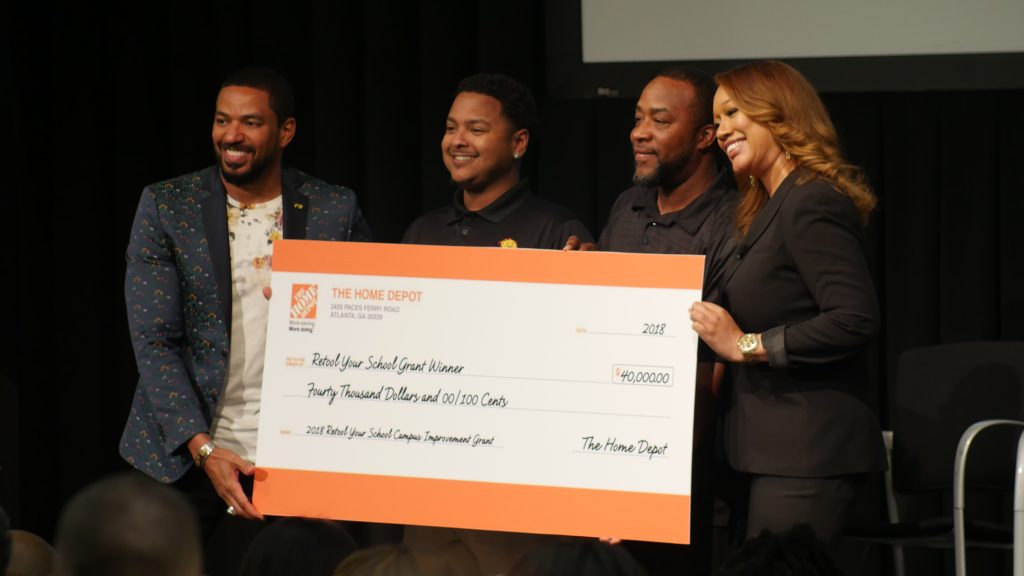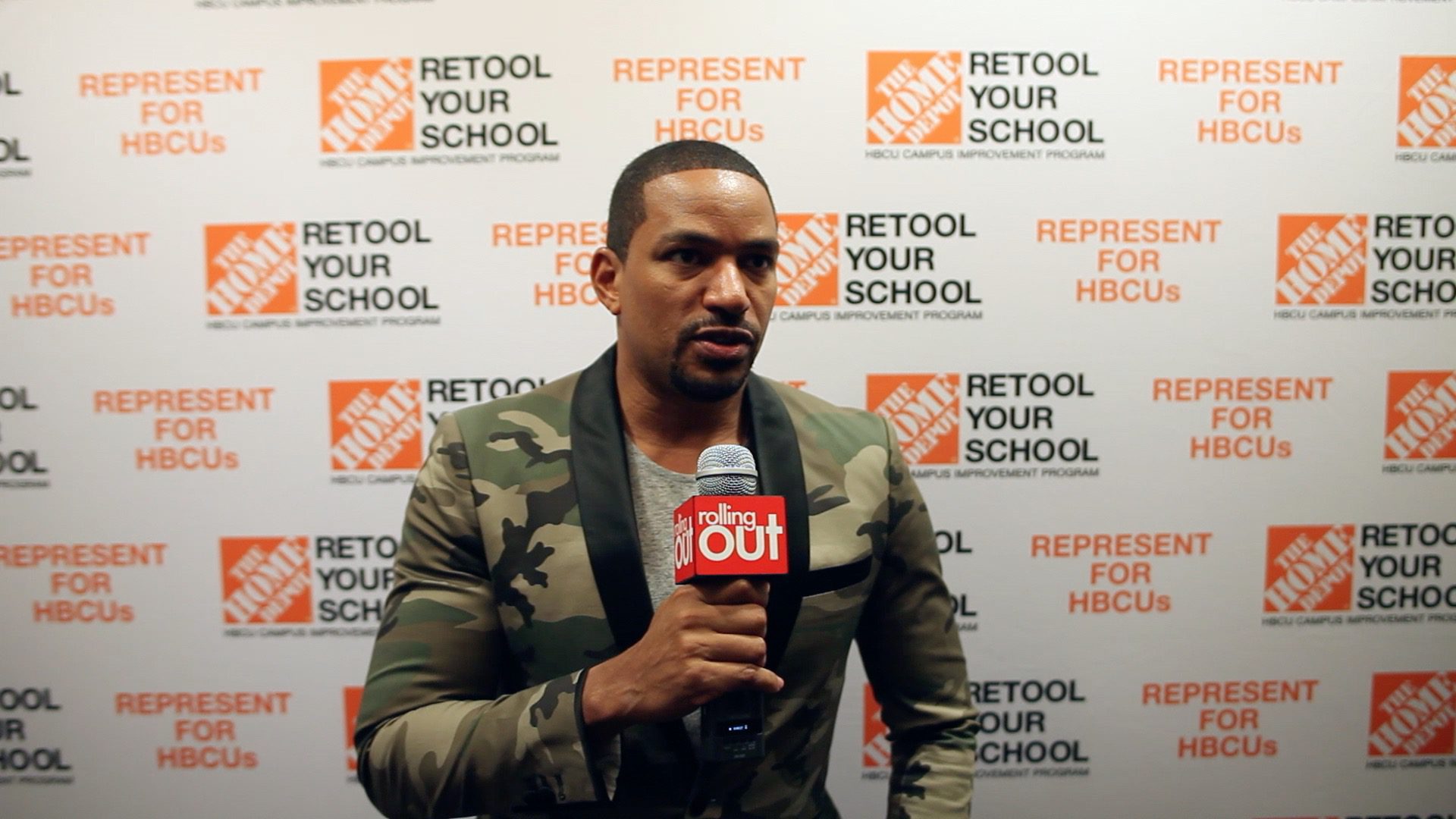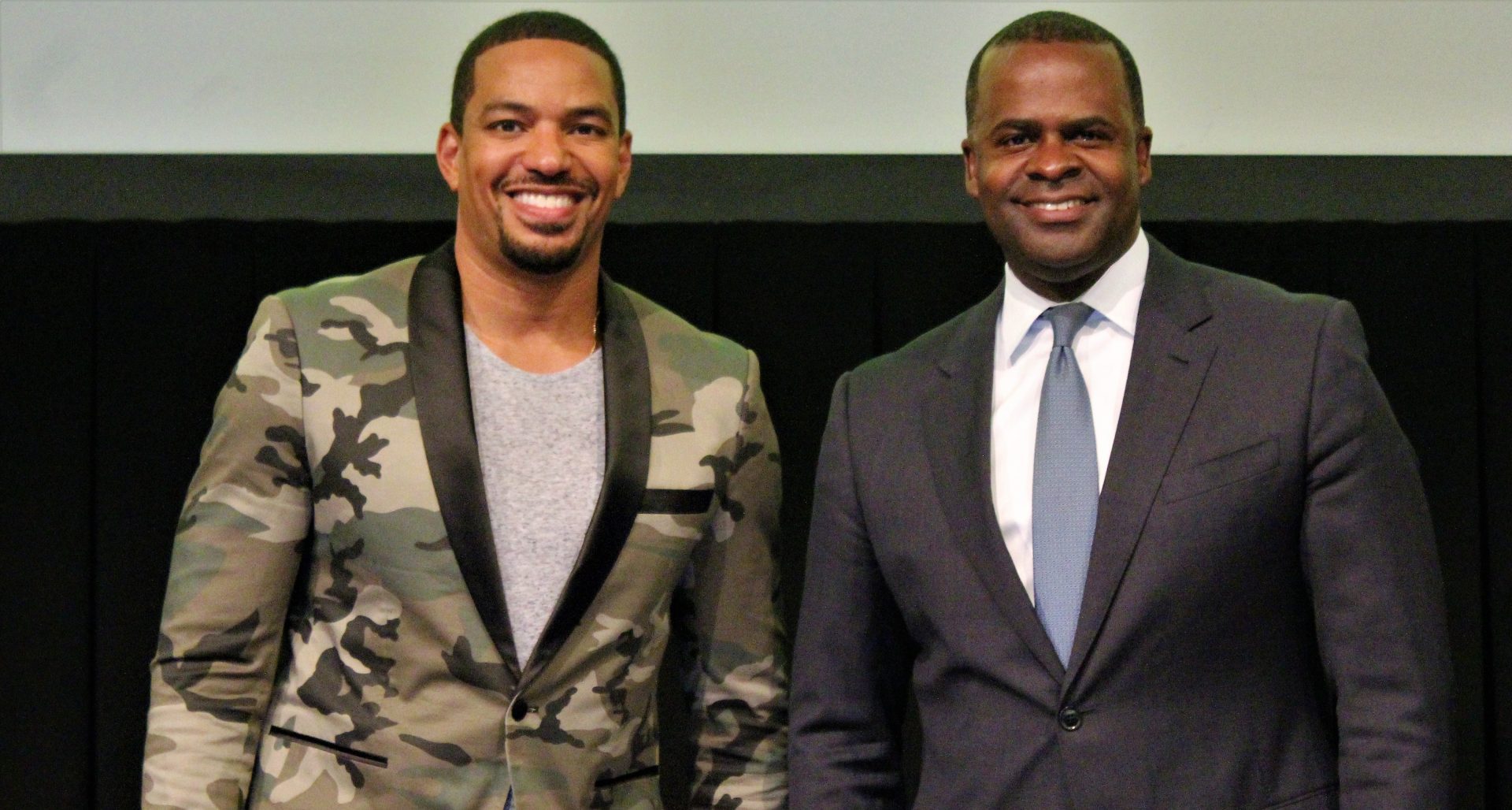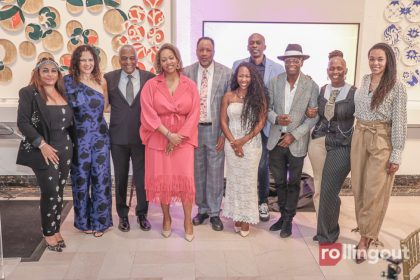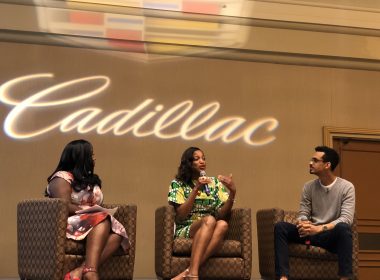
Actor Laz Alonso is best known for his excellent acting skills in movies such as Avatar, Fast & Furious 6, Jumping the Broom, and most recently NBC’s “Mysteries of Laura,” however, he got right down to business at the White House as he recently spoke out on environmental responsibility, environmental discrimination and environmental equity. His goal is to help spread the word and connect the younger generations with the work of climate equity.
Alonso was given a national platform as he delivered a speech on his view of the American Dream at the White House Champions of Change for Climate Equity forum. Alonso advocated for climate equity for people of color in cities like New York and Los Angeles, or wherever there is a disproportionate amount of environmental equity and environmental discrimination.
His speech commenced with informing the audience that his family immigrated from Cuba in hopes of finding a better life and living the American Dream, which is only limited by the willingness to work hard. Alonso touted hard work and imagination as key to solving problems, “… solving problems is what keeps dreams alive.” He summarized his major concerns when he said this: “Environmental justice has to come into consideration when decisions are being made. It can’t only benefit some people at the detriment of others.” An excerpt from his speech below gives details on exactly what he thinks:
“Climate change sees no race. It sees no gender. It sees no color of skin. No religion. No status. No social or economic class or educational achievements,”he said. “It may be the single most common issue that we all face regardless of any differences that we may have. This is not our world. It’s not our world. It’s simply on loan to us during our lifetime. And we should return it in better condition than how we inherited it. Every life form has the right to be here and we must appreciate and respect that. That is our moral and social responsibility to each other and to those who will come after us. There will be no American dream if we don’t. ”
Alonso points out that New York’s South Bronx is a dumping ground for the city’s waste and sewage and that it’s no coincidence that there are a lot of Black and Brown people residing there. As a result, their air quality also suffers. “Sewage plants and constant traffic from diesel trucks dumping day and night has elevated the South Bronx’s hospitalization rate for asthma in Black and Brown children at a rate of 21 times higher in the South Bronx, than anywhere else in New York City. Not a coincidence,” he said.
“Smog and droughts have made us all a lot more fearful and responsible of preserving where we love to live,” he said of the state of his current home, Los Angeles. “In the last five years, I’ve witnessed solar panels, hybrids and electric vehicles, wind farms and seen more innovative ways of reusing water to address these issues. Residents are spending their own money and investing and helping with the environment, but as you move further south in the city, you see less and less electric vehicle charging stations. In turn, you see less electric vehicles, less solar panels, less environmental infrastructure being developed in what are primarily African American, Hispanic, and minority neighborhoods in general, people of color. These areas are some of the most densely populated areas in the city and could immediately add to the positive impact we see to help the state, if we invest there. There has to be environmental and economic equity as we develop this new economy of clean fuel.”
Alonso says that Compton, California, a city once teeming with warring gangs, can now be a source of wealth. “The city of Compton has the most warehouses in all of Los Angeles, miles and miles of empty rooftops [where solar panels can be a benefit], in a city where the sun shines almost every single day of the year. Over eight million jobs have been created with this new clean energy economy. Can you imagine the job creation and the wealth building this could bring to impoverished communities if we expand our reach to embrace them as well? It would benefit the people of that community, it would benefit the state, the city benefits, and generations to come of every race. When we don’t embrace all communities, we see a lot of what we’re witnessing today: disenfranchisement, feeling forgotten, left out, discounted, disposable, and disregarded,” he said.
“What makes the American Dream exist is the promise of living in an inclusive country that encourages opportunity on a level playing field for all of its citizens. As we make decisions on how to improve lives, we must never forget the very basic core principles of the American Dream: it must be available to all of us. Everyone has something to offer if given the opportunity to do so. Let’s take this into consideration when achieving our environmental goals as well.
“We have an opportunity to take this momentum and make it available to all that make up this country, and make this American Dream the reality that we know it can be,” he said.
What do you think of Alonso’s stance on climate equity? Chime in on the comments section to let us know.

